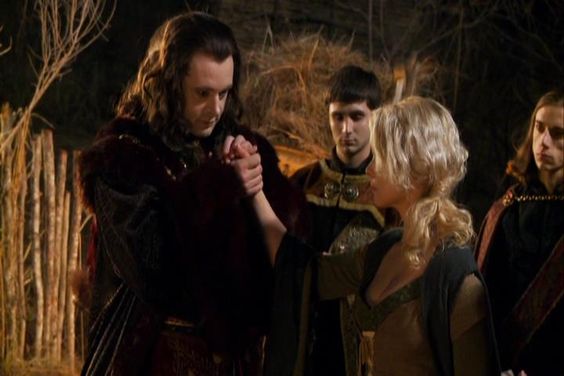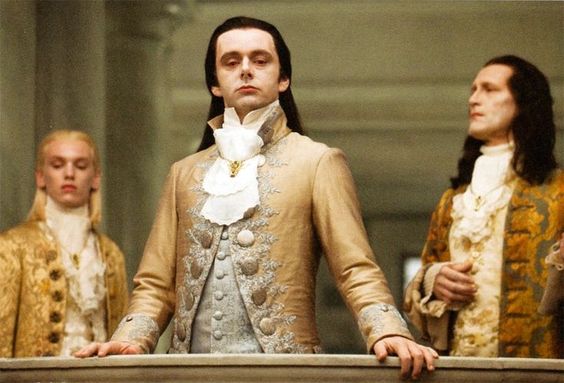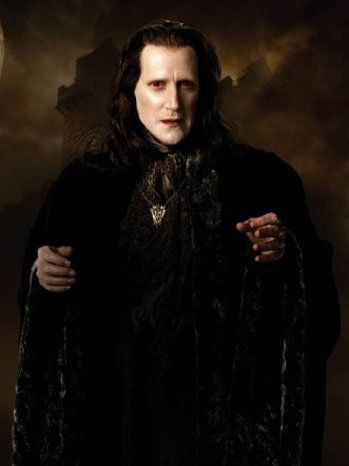
Volturi member Marcus has a tragic Twilight canon backstory, but why was it cut and how was the villain’s dark past referenced in Breaking Dawn?
Marcus is a major villain in the Twilight saga, but the movies never explain his surprisingly tragic backstory even though it is referenced in Breaking Dawn. The Twilight saga may have brought author Stephenie Meyers’ teen paranormal romance novels to the big screen, but the movie adaptations were forced to cut a lot of backstories to keep their runtimes reasonable. The Twilight movies excised the backstories of many Cullen family members and almost all the franchise’s villains, resulting in New Moon wasting Alec and Jane by failing to explain what made the antagonists so uniquely lethal.
However, while New Moon’s missing backstory made Jane and Alec less scary, some Twilight villains were rendered less sympathetic by the absence of their subplots. For example, the Volturi’s aloof member Marcus seems disinterested in the sadistic plans of his coven brethren throughout the Twilight movies, but the adaptations never explain how he became so disillusioned and disengaged. The answer can be found in Meyers’ companions to the Twilight series, and it is a backstory so sad that many viewers may find themselves rooting for poor Marcus by its tragic ending.
Marcus is introduced alongside the rest of the Volturi in New Moon and appears again in Breaking Dawn Part 2, where he plays a part in the final battle sequence. Of course, Breaking Dawn’s infamous ending plot hole retcons the battle shortly after it occurs, meaning Marcus has a fairly minor role in the Twilight series as a whole. However, in the original novels, he is more than merely Aro’s righthand man. In the books, Marcus actually has reason to hate the leader of the Volturi thanks to a centuries-long story of murder, betrayal, and lost love.
 How Marcus Became A Vampire
How Marcus Became A Vampire
The ambitious Aro turned Marcus around 1370 B.C and the two soon became the formative members of the Volturi. However, as a rootless nomad, Marcus was never overly invested in Aro’s plans to dominate the vampire world and played along with his schemes only half-heartedly. When Aro introduced him to Caius, Marcus reluctantly formed a coven with the duo, and the Volturi seen in the saga was born when the trio defeated Twilight’s Romanian Coven. However, shortly after the group gained power over the vampire world, Marcus soon became the victim of a tragic betrayal thanks to Aro’s relentless pursuit of further power and status.
Marcus’ Romance With Aro’s Sister
Aro turned his sister Didyme into a vampire and Marcus fell in love with her as soon as the two met. Didyme’s ability to make anyone feel content and happy helped Aro’s plans to conquer the vampire world but, while the talent came in handy, it also resulted in Marcus being more attached to Didyme than Aro would have liked. For a few centuries, Marcus and Didyme’s affair did not bother Aro too much but, when Aro’s hunger for power became stronger, he was upset that the two lovers didn’t care about his plans for the Volturi. Like later Twilight franchise villain Victoria, Aro wanted to amass a vampire army. As such, the fact that one of his best soldiers, Marcus, was too content with his lot to fight was inconvenient for the villain. This led to a moment of evil that went on to define both Aro and Marcus’s characters.
Aro’s Brutal Betrayal of Marcus
Behind his friend’s back, Aro murdered his own sister to ensure that Marcus would help him take over the vampire world and remain faithful to the Volturi. Since Aro was able to read the minds of other vampires, he heard Marcus and Didyme conspiring to leave the coven behind and find happiness elsewhere, far from her brother’s plans to kill his way to vampire royalty. Aro not only covered up the crime but even spent years “helping” his friend search for Didyme’s killer to ensure that Marcus suspected nothing. However, like Rosalie’s bloody origin, the tragic Twilight backstory was all for naught in the end, as Aro’s plan essentially failed in the long run. Although Marcus did continue to play a part in the Volturi, Aro’s victory was a pyrrhic one with his brother in arms now caring even less about Aro’s ambitions than he did when he was happy with Didyme.
How Marcus’s Backstory Affects Breaking Dawn
Although Marcus’ backstory is all-but-absent in the Twilight movie adaptations, the final film in the saga does feature a nod to the character’s novel origins. It is one that few viewers would be able to understand without the requisite context, but the sequence is nonetheless a touching tribute to Marcus’ backstory. In the closing scenes of Breaking Dawn, Marcus welcomes death on the battlefield with a forlorn utterance of “Finally,” seemingly glad to be freed from his immortal coil. For most viewers, the scene plays as an effective moment of blackly comic relief, as it appears the deeply bored vampire is just glad to die regardless of the circumstances.
However, the actual reason that Marcus delights in the prospect of his death is that fearing one of his best soldiers would commit suicide after Didyme’s death, Aro enlisted the help of the vampire Chelsea, who had a gift for ensuring that vampires couldn’t harm themselves. Chelsea’s abilities ensured that Marcus never ended his immortality, keeping him in line for centuries and resulting in the dispassionate, listless vampire seen throughout the Twilight series. Thus, Marcus can’t take his own life but longs for death and would be glad to be reunited with Didyme if given the opportunity, as proven by his reaction to imminent death in Breaking Dawn Part 2’s quickly canceled-out battle sequence.
Marcus’ Backstory Ruins Twilight’s Happy Ending
Of course, the revelation that Marcus has spent centuries in a living Hell through no fault of his own makes the supposedly happy ending of Breaking Dawn Part 2 somewhat tragic. Since Marcus’ death only occurs in Alice’s vision, in the reality of the Twilight franchise the Volturi member survives the saga’s climax and the bloody battle never really happens. Thus, Marcus is condemned to continue his eternity of misery so that the Cullens can keep their happy ending, an unfortunate twist that could easily have been avoided if the Twilight sequel didn’t depict him hopefully embracing death before snatching it away from the tragic figure.
